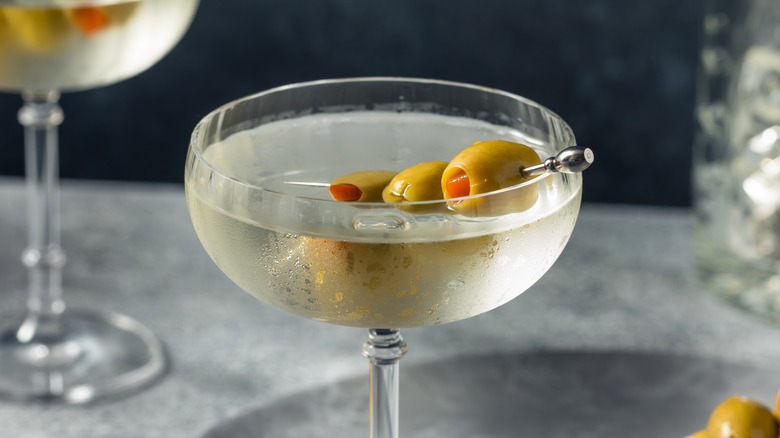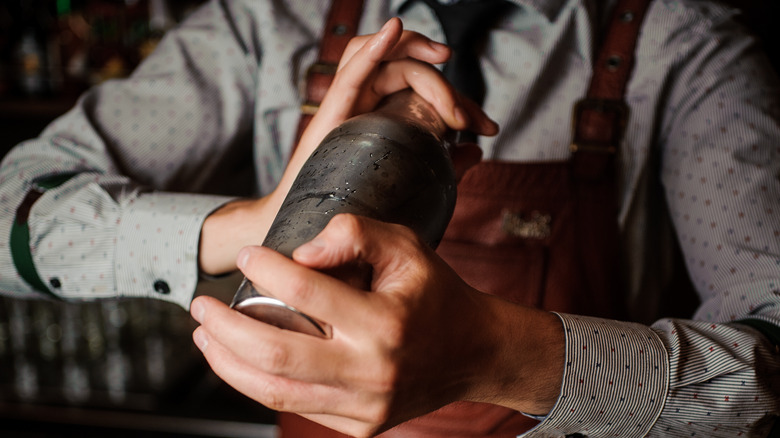Is It Actually Possible To Bruise The Gin In A Martini?
"Drink, sir?" "Yes, I'll have a vodka martini. Shaken, not stirred." Come, come, Mr. Bond. You know a true martini is made with gin. While gin may begin its life as neutral, vodka-like spirit, the infusion of botanicals are what make it perfect for making a fantastic martini, per Drinks House 247. The martini is a drink that is noticeably iconic — note our James Bond reference — and seemingly immune to the comings and goings of modern mixology trends. Martinis are cool and crisp, dirty and clean, and undeniably American (via Food52). This winning combination of gin and vermouth, shaken or stirred over ice, is a wonderful cocktail for an evening in, as it is really quite easy to make at home.
In spite of this, however, there are a few ways to mess up a martini. Though the classic mixture is one of sparse ingredients when compared to more complicated cocktails, like the whimsically French pousse cafe, the steps for making a martini should nonetheless be followed with a decent amount of precision. As VinePair explains, you want to be aware of the balance of gin to vermouth. Depending on your taste, you could add more vermouth for a wet martini or keep it simple with the standard ratio for a dry martini. The next step, though, is where you could truly mess things up. You're at the mixing stage, and a decision needs to be made between the Bond's preference or the other option.
Stirred, not shaken
There is debate among bartenders about whether or not you can actually bruise gin. Of course, being a liquid, it's impossible to bruise gin in the way you would bruise a tomato. However, the phrase has to do with agitating the chemical reactions brought about by shaking your martini. According to Tales of the Cocktail, shaking a gin martini is a recipe for disaster. As a spirit, gin is split into three odorous notes: the top note, where the botanical perfumes rise, the middle note, and the fixed base note. When mixed properly, the base notes will blend with the top notes, preserving the botanicals while keeping the martini smooth and crisp.
When you shake a gin martini you are not only chilling it, you are injecting air into it, diluting it in ice, and agitating and breaking down the botanicals. A shaken gin martini will be muddled and devoid of the crisp complexity so indicative of the drink. Cocktails that are very spirit based, like the martini or the Negroni, should be mixed by gently stirring, not shaking, in order to preserve the flavors and the smoothness of the spirits imparted. Shaking is best when you have cocktails that are heavier on ingredients and mask the natural flavors of the base spirit, per The Cocktail Project. Perhaps, where vodka is so neutral, 007 was hoping to shake in some flavor? Alas, if he'd only gone with gin.

